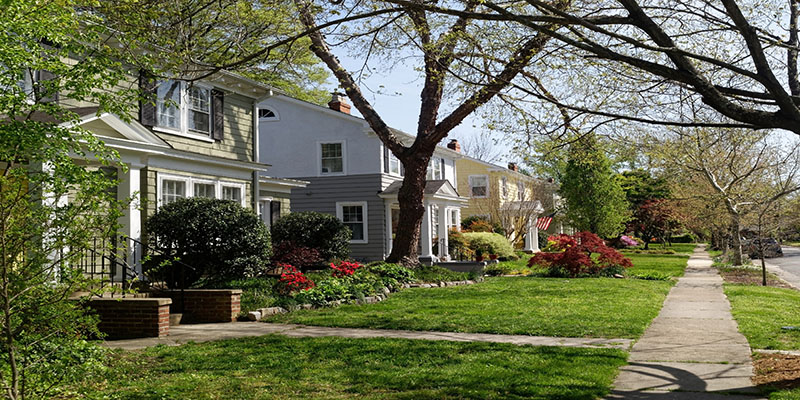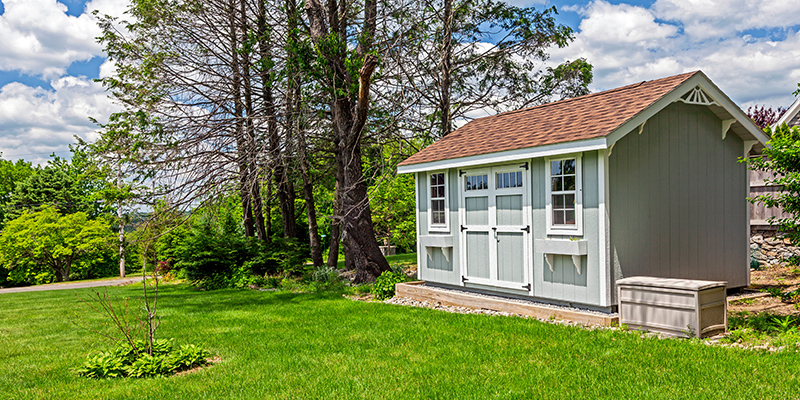Virginia Property Owners Association Act 2021: Changes And Updates

The Virginia Property Owners Association Act recently underwent changes and updates, impacting some of the ways HOAs operate. What are these amendments? Let's find out.
Browse By Category
Sign up for Our Newsletter
The Virginia Property Owners Association Act recently underwent changes and updates, impacting some of the ways HOAs operate. What are these amendments? Let’s find out.
What Are the Changes to the Virginia Property Owners Association Act?
In Virginia, homeowners associations are governed by the Virginia Property Owners Association Act. Condominiums, on the other hand, follow the Virginia Condominium Act. Legislators recently passed numerous bills affecting these two statutes.
Electronic Meetings and Voting (HB 1816/SB 1183)
The first change to the Virginia Property Owners Association Act and the Virginia Condominium Act has to do with online meetings and voting. According to this change, HOAs can hold annual meetings, board meetings, special meetings, and committee meetings virtually, either totally or partially. The condition, though, is that the board must have enacted guidelines for the use of such means at these meetings.
The guidelines for electronic meetings should meet the following:
- Make sure that those joining the meetings are allowed to do so; and,
- Make sure that those who can join the meetings have the opportunity to do so.
Previously, associations had to have at least two board members attend the meeting place in person. The change does away with this requirement.
It is within the board’s discretion to decide whether to conduct the meeting totally or partially by electronic means. Should a person lack the desire or ability to attend using electronic means, though, the HOA must make a reasonable alternative available at its own expense.
As for voting, members are now allowed to vote in person, by proxy, or by absentee ballot, unless the HOA’s governing documents expressly forbid it. This type of voting can also take place electronically, so long as the board has enacted guidelines for it. Associations must also consider members who vote by proxy or absentee ballot as having attended the meeting. This will help the HOA meet a quorum.
Associations can also use secret balloting via electronic means. Though, boards must make sure to protect the identity of the voter. If an association can’t achieve this, it must use a different form of voting.
Rulemaking Authority (HB 1842)
A change to the Virginia POA Act states that a majority of owners at a special meeting may amend or repeal a rule enacted by the HOA board. The Virginia Condominium Act also went through an amendment to closely follow the provision in the Virginia Property Owners Association Act. According to this change, condo boards can create and enforce rules concerning the use of common elements and areas under the association’s responsibility.
Rulemaking Authority Regarding Smoking (HB 1842)
Boards can now adopt rules that restrict smoking in the development. This includes rules that forbid smoking in common areas and attached private dwellings, though only to the extent that the declaration allows. Similarly, condo boards can enact rules that restrict smoking in common elements and within individual owners’ units.
Marijuana (SB 1406 and HB 2312)
According to SB 1406 and HB 2312, it is legal for persons aged 21 years and up to possess up to an ounce of marijuana. They may also grow marijuana plants, provided they are grown in their homes and for personal use. No household, though, may grow more than four marijuana plants. Additionally, these plants must be kept out of public sight. Owners must also attach a tag to each plant consisting of the owner’s name, identification number, and a note that says the plant is for personal use only.
Parking Accommodations for the Disabled (HB 1971)
Another change to Virginia HOA laws has to do with reasonable accommodation. According to HB 1971, associations must treat requests for accessible parking to accommodate a disability as a reasonable accommodation request. This applies even if it involves a physical modification to the property.
More than that, associations must shoulder the cost of the accommodation. This is true provided it does not put an undue financial or administrative burden on the association and does not fundamentally change the operations of the HOA. Determining whether the request violates these two conditions will depend on the case.
Prohibited Discrimination Based on Military Status (HB 2161/SB 1410)
The Virginia POA Act 2021 also includes a change to fair housing laws. Under the state’s fair housing laws, community associations may not discriminate against persons based on their race, color, national origin, sex, sexual orientation, gender identity, religion, disability, familial status, elderliness, source of funds, and status as a veteran. “Status as a veteran” is now “military status,” which does not only limit the class to veterans. Now, it includes members of uniformed services or reserves or a dependent of such members.
Addition of Disability as Unlawful Discriminatory Employment Practice (HB 1848)
According to the amendments made to the Virginia Human Rights Act, employers may not discriminate against persons due to their disability. Employers must also provide reasonable accommodations for those with disabilities if reasonable accommodations are needed for the individual to perform their job. The exception is if the employer can show that the accommodation would place an undue burden on them.
Additionally, employers must let employees know of this right. They can do so by writing it on the employee handbook and posting it in a visibly noticeable place.
Judgment Enforcement Limitations (HB 2099)
For judgments obtained before July 1, 2021, execution and actions will stay enforceable for 20 years from the judgment’s date. The exception is if the period is extended as written in Va. Code Section 8.01-251B.
For judgments obtained after July 1, 2021, execution and actions will stay enforceable for 10 years from the judgment’s date. Again, the same exception applies here.
One may extend the period by recording a certificate in the Clerk’s Office before the limitation period expires. A judgment creditor can file for one additional extension before the 10-year extension period ends. This will extend the period by another 10 years from the date of the second certificate.
Increase in General District Court Jurisdictional Limits for Some Actions (SB 1108)
There has also been a change to the jurisdictional claim limit of the general district courts for injury to a person and wrongful death. Previously, the limit was $25,000. After the change, the limit is now $50,000, not including attorneys’ fees and any interest.
Local Stormwater Management Fund (SB 1309)
Beginning July 1, 2021, localities may allocate Stormwater Management Funds to flood mitigation and protection efforts. Plans that consist of nature-based practices will receive priority.
Dangerous Dogs; Procedure for Adjudication (SB 1135)
The final amendment to the Virginia Property Owners Association Act involves dangerous dogs. If there is reason to believe a dog may be dangerous, any law enforcement officer or animal control officer may now apply to a magistrate for a summons that will require the dog owner to appeal before a general district court.
The officer must give written notice of the application to the owner. After the owner receives the notice, they must not do away with the animal. The exception, though, is if they surrender the animal to the officer or have a veterinarian perform euthanasia on the animal.
Following the summons, the officer may hold the animal until the presenting of evidence and the reaching of a verdict. The hearing must take place within 30 days from the issuance of the summons. The decision will rest on the court, though an animal may be declared dangerous if there is evidence showing one of the following:
- That the animal killed a companion animal (dog or cat) or dealt serious injury on a companion animal (dog or cat); and/or
- That the animal seriously injured a person (broken bone, laceration, substantial puncture of the skin, etc.)
Should an owner appeal the finding, it must take place within 30 days.
Summons Not Permitted
However, officers may NOT apply for a summons if they discover one of the following upon investigation:
- In the event of an injury to a companion animal (dog or cat), that no serious injury took place after an attack or bite, that both animals have the same owner, or that the event originated on the property of the owner with the attacking or biting animal; or,
- In the event of an injury to a person, the only injury that occurred is a single nip or bite that resulted only in an abrasion, scratch, or other minor injuries.
To determine whether or not an injury is serious, the officer may check with a licensed veterinarian.
Staying in the Loop
It is imperative for associations to always keep up-to-date on any changes to the Virginia Property Owners Association Act. This way, HOAs can stay on the right side of the law. When in doubt, it is best to consult an HOA management company or a lawyer with experience in HOA law.
Find the best HOA management company in your area today. Use our comprehensive online directory as a starting point.
RELATED ARTICLES:
- New California HOA Laws Passed In 2021
- HOA Attorneys – Why They Are Important And How To Find One
- HOA And Deliveries In The Covid-19 Pandemic
Trending Now
Related Article
Sign up for Our Monthly Newsletter
Sign up below for monthly updates on all HOA Resource

















